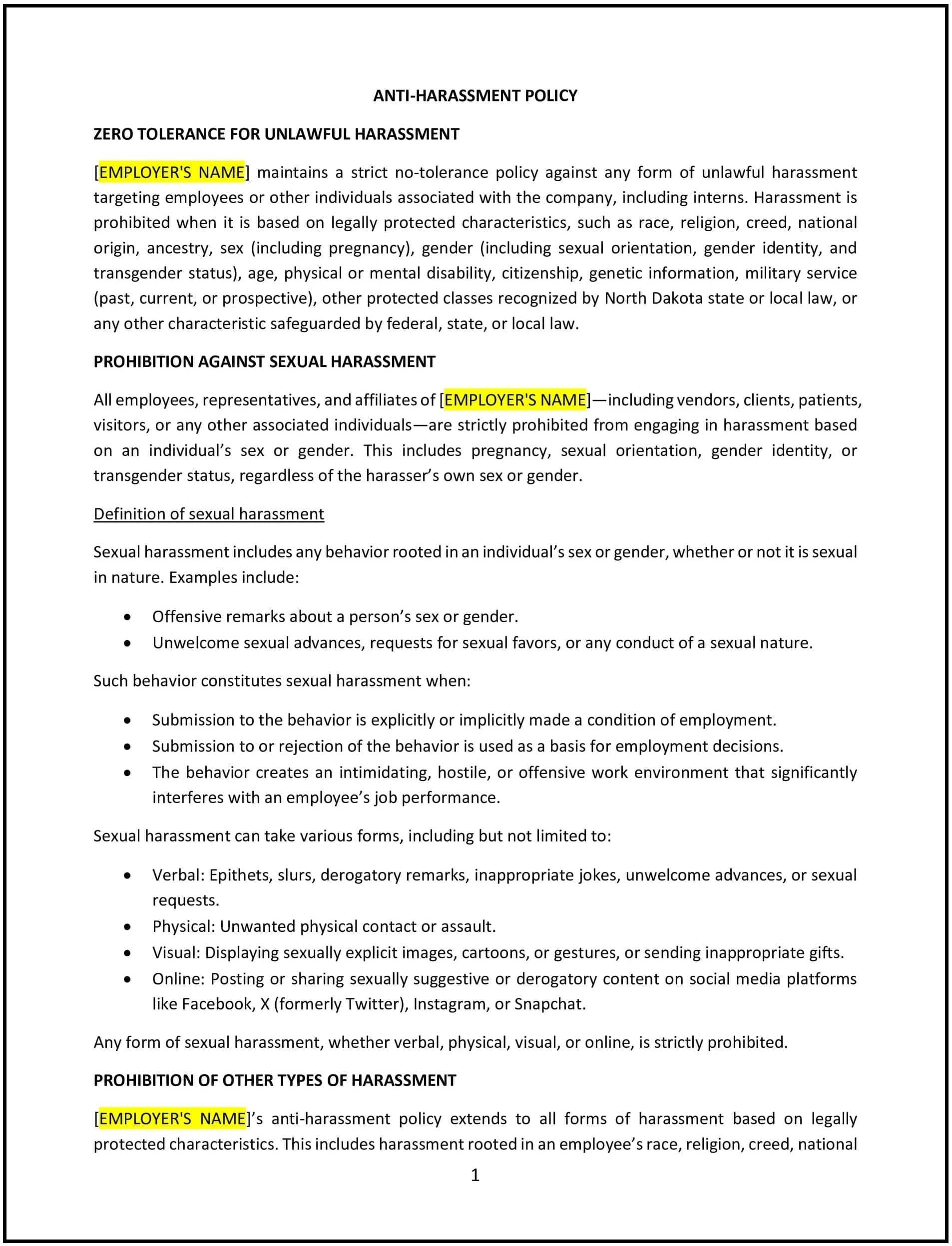Anti-harassment policy (North Dakota): Free template
Got contracts to review? While you're here for policies, let Cobrief make contract review effortless—start your free review now.

Customize this template for free
Anti-harassment policy (North Dakota)
This anti-harassment policy is designed to help North Dakota businesses establish a respectful and professional workplace by preventing harassment of any kind. The policy outlines prohibited behaviors, reporting procedures, and steps for addressing harassment complaints to maintain a safe and inclusive work environment.
By implementing this policy, businesses can reduce legal risks, improve workplace culture, and ensure fair treatment of all employees.
How to use this anti-harassment policy (North Dakota)
- Define workplace harassment: Identify prohibited behaviors, including verbal, physical, visual, and sexual harassment.
- Establish reporting procedures: Require employees to report harassment concerns to HR, management, or a designated compliance officer.
- Implement investigation protocols: Outline how complaints will be reviewed, documented, and resolved.
- Set confidentiality protections: Ensure reports and investigations remain private and handled with discretion.
- Prohibit retaliation: Protect employees from negative consequences for filing complaints in good faith.
- Define disciplinary actions: Specify corrective measures, including warnings, training, or termination for violations.
- Review regularly: Update the policy as needed to reflect changes in harassment laws and workplace best practices.
Benefits of using this anti-harassment policy (North Dakota)
Implementing this policy provides several advantages for North Dakota businesses:
- Creates a respectful workplace: Establishes a culture of inclusivity and professionalism.
- Reduces legal risks: Helps businesses manage harassment complaints and prevent liabilities.
- Encourages employee reporting: Provides a clear and safe process for addressing workplace harassment.
- Supports compliance with federal and state laws: Aligns with North Dakota workplace regulations.
- Reflects North Dakota-specific workplace considerations: Addresses harassment prevention best practices relevant to the state.
Tips for using this anti-harassment policy (North Dakota)
- Train employees on harassment prevention: Provide regular education on recognizing and reporting harassment.
- Encourage early intervention: Address concerns before they escalate into formal complaints.
- Offer multiple reporting options: Provide employees with different ways to report concerns, including anonymous reporting.
- Maintain detailed documentation: Keep records of complaints, investigations, and resolutions.
- Adjust as needed: Update policies based on employee feedback and legal changes.